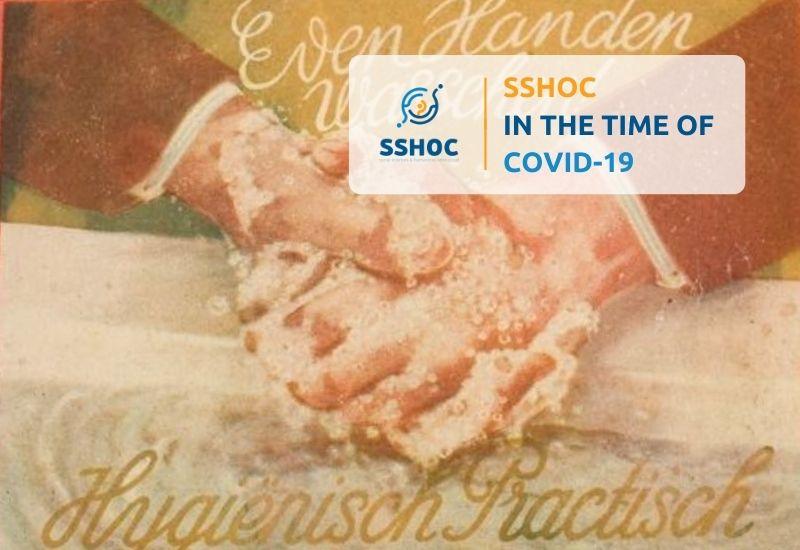
- Social Sciences & Humanities Open Cloud
How SSHOC is responding to COVID-19

Date:
10 September 2020
In the early days of the pandemic, the European Commission asked Research Infrastructures and associated projects to describe specific actions towards creating a European data platform for COVID-19 which would "enable the rapid collection and comprehensive sharing of available research data from different sources for the European and global research communities" This is distinct from The European-funded COVID-19 Data Portal which facilitates data sharing and analysis to accelerate coronavirus research". The Response from SSHOC on COVID-19 was tabled on 30 April 2020.
This article lays out specific actions taken by SSHOC partners to continue to serve their communities in the context of the Corona virus crisis.
CESSDA
The Consortium of European Social Science Data Archives (CESSDA) has established a dedicated COVID-19 data archive within the CESSDA Data Catalogue, a platform for researchers wanting to find and reuse social science and humanities research data. The catalogue contains metadata of surveys in the holdings of CESSDA's Service Providers and all COVID-19-related metadata are harvested to it as they become available to CESSDA Service Providers. Links to the latest datasets to be added to the catalogue are prominently displayed alongside detailed and exhaustive listings of relevant COVID-19 survey activities sourced by CESSDA Service Providers across Europe.
European Language Social Science Thesaurus
Managed by the University of Essex in support of the work of SSHOC partner CESSDA, the European Language Social Science Thesaurus (ELSST) offers a complete entry for COVID-19 with a preferred term in each of 14 language versions. ELSST follows the recommendations of International Standards Organization’s Guidelines ISO 25964-1 (2011): Information and documentation - Thesauri and interoperability with other vocabularies, Part 1.
CLARIN
Research Infrastructure CLARIN (Common Language Resources and Technology Infrastructure) has organised a one-month, virtual Hackathon on COVID-19 Related Disinformation which runs from 21 September to 15 October. Spurred by the noticeable increase in disinformation and fake news which accompanied the arrival of the pandemic, the hackathon will bring together cross-disciplinary groups of researchers to work on the task of disinformation detection using existing data to classify disinformation or predict the likelihood that a piece of text is misinterpreting the facts. Teams will report back to eachother on their progress just over halfway through the Hackathon as part of the CLARIN Bazaar during the Virtual CLARIN Annual Conference.
WageIndicator
The WageIndicator research infrastructure is a non-profit foundation hosted by SSHOC partner CLARIN. Through national websites in 140 countries, WageIndicator shares data related to wages and labour laws colllected from millions of web visitors situated around the world. Since 31 March 2020, working age users - contracted, self-employed and unemployed alike - have been able to complete the Continuous Global Online survey "Living and Working in Corona Times". The survey questions are standard across countries, thus enabling WageIndicator to closely monitor the development of the corona crisis and its impact on the world of work. The results are shown in maps and graphs for 134 countries, updated on a daily basis.
European Social Survey
The European Social Survey (ESS) is an academically driven cross-national survey that has been conducted across Europe since its establishment in 2001. Every two years, face-to-face interviews are conducted with newly selected, cross-sectional samples with the aim of measuring the attitudes, beliefs and behaviour patterns of diverse populations across some thirty countries.
In July 2020 ESS announced the addition of 10 COVID-19 related questions to the Round 10 survey questionnaire which is due to be fielded across Europe from this September. The questions will focus on public attitudes towards government responses to the pandemic, and on conspiracy beliefs related to the disease. ESS reported an impressive response to the special COVID-19 open call which in less than four weeks resulted in question submissions from almost 30 scientific teams. It is confidently expected that the survey round will shed light on how the response to COVID-19 is being assessed by European residents.
SHARE
In June 2020, SHARE, Survey of Health, Aging and Retirement in Europe, started the fieldwork in a new SHARE COVID-19 survey. A sub-sample of panel respondents were interviewed via a Computer Assisted Telephone Interview (CATI) to collect data on the same topics as in the regular SHARE questionnaire - but shortened and targeted to the COVID-19 living situation of people who are 50 years and older. Read more about the survey research methodology here.
The purpose of the survey was to examine in-depth how the risk group of older individuals was coping with the health-related and socioeconomic impact of COVID-19 and to measure and interpret differences in a cross-country and a longitudinal dimension.
A call for papers was published August 1st to bring the SHARE Covid results into the European Journal of Ageing. This proposal is now under review.
SHARE has received a major grant from the EU Commission to research the consequences of the pandemic control measures.
The SHARE Corona Survey data will be released (Release 1) to the entire research community in December 2021.
